Can a German Shepherd Eat Chicken?
Date Published: February 12, 2024 | Last Modified: February 16, 2024
Before we delve into the topic at hand, it's important to establish one fact: German Shepherds can indeed enjoy chicken as part of their diet. In this article, we will explore the numerous health benefits that come with incorporating chicken into a German Shepherd's meals, as well as weigh the pros and cons of this popular protein source. Additionally, we will address safety concerns surrounding feeding chicken to these intelligent and loyal canines, including any potential toxicities to be aware of. By the end of this read, you will have a better understanding of whether chicken is a good fit for your beloved German Shepherd's nutritional needs.
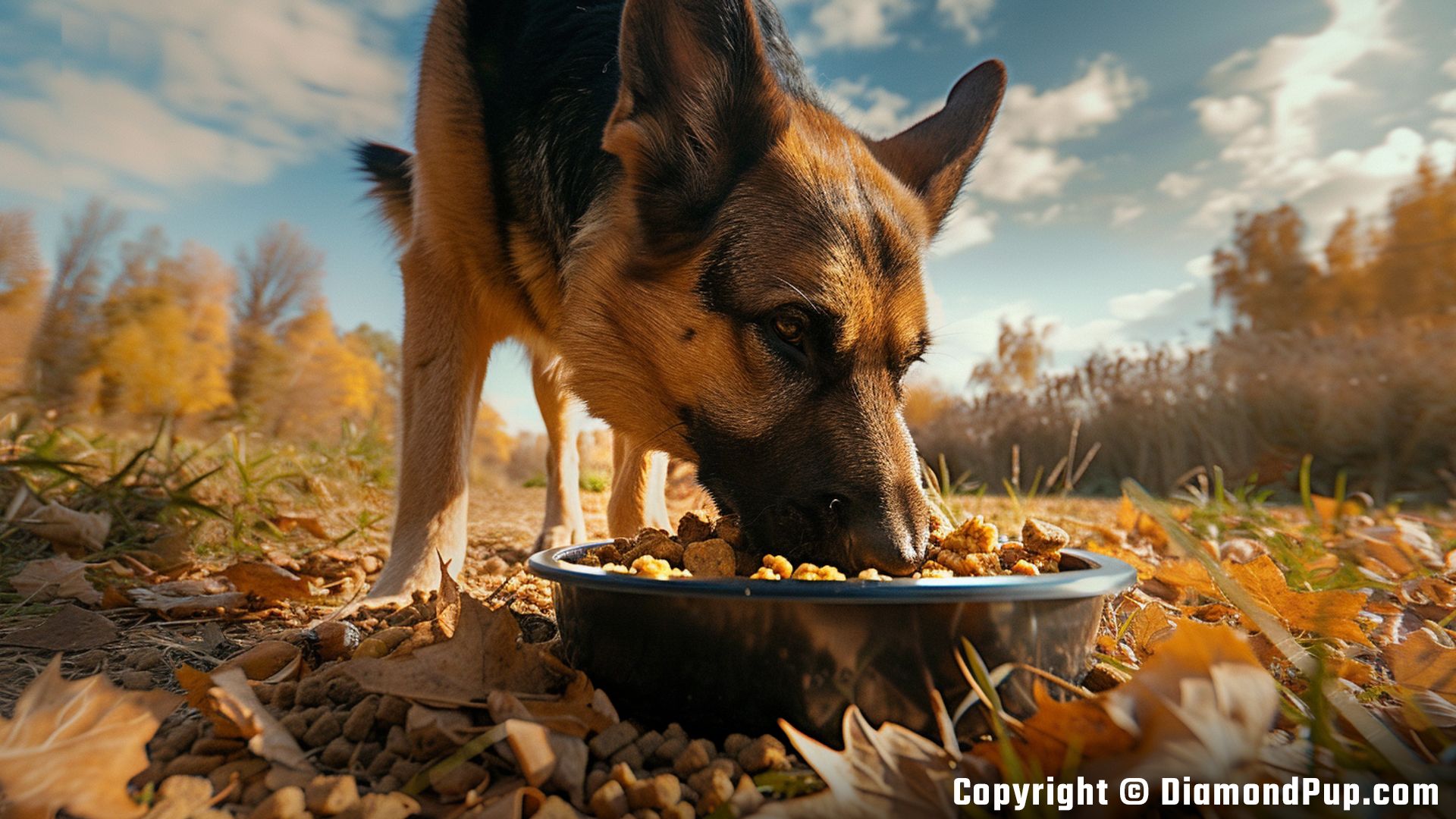
Are Chickens Good for German Shepherds?
Chicken is an excellent protein source for German Shepherds due to its high-quality amino acid profile, which helps in muscle development and maintenance. This is particularly important for German Shepherds, known for their active and energetic nature. Additionally, chicken is rich in essential nutrients like vitamin B6, phosphorus, and selenium, which are crucial for your dog's overall health and well-being.
When choosing chicken for your German Shepherd, opt for lean cuts without skin to avoid excess fat intake, which can lead to obesity and related health issues. Cook the chicken thoroughly to eliminate any harmful bacteria that could potentially cause digestive upsets in your furry friend. Overall, when fed in moderation and as part of a balanced diet, chicken can be a safe and beneficial addition to your German Shepherd's meals.
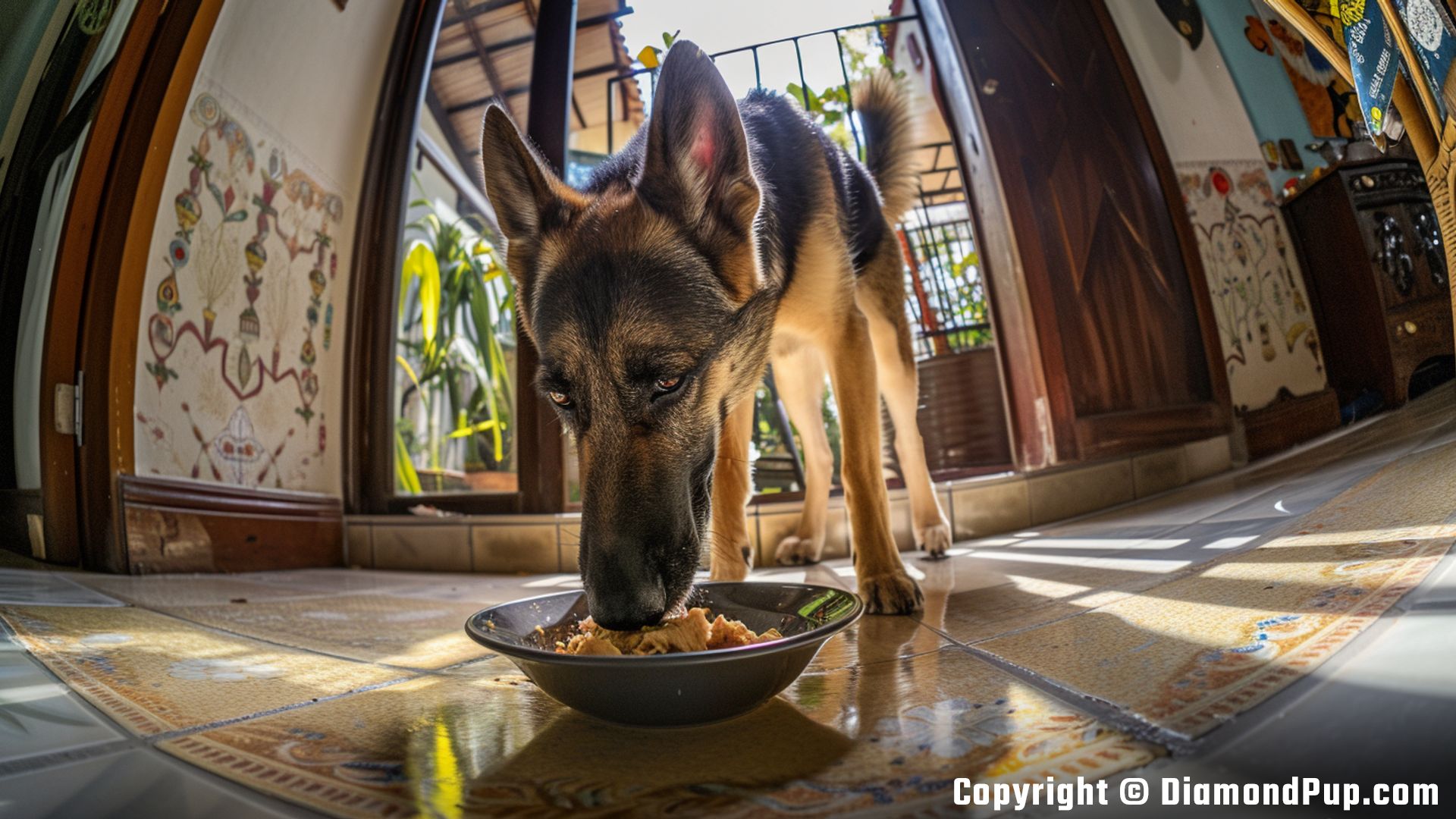
Understanding the Benefits of Chickens for German Shepherds
Chickens can be a valuable addition to a German Shepherd's diet due to their high-quality protein content. Protein is essential for your dog's muscle development, immune function, and overall health. German Shepherds, being a larger and active breed, require a diet rich in protein to support their energy needs and maintain a healthy body condition. Chicken is also a good source of amino acids, which are the building blocks of proteins and play a crucial role in various physiological processes within your dog's body.
In addition to protein, chicken is a good source of vitamins and minerals such as B vitamins, iron, zinc, and magnesium, all of which are important for your German Shepherd's health and well-being. These nutrients support various bodily functions, including metabolism, brain function, and the immune system. When choosing chicken for your German Shepherd, opt for lean cuts without added salt or seasoning to ensure your canine companion reaps the full benefits of this nutritious protein source.
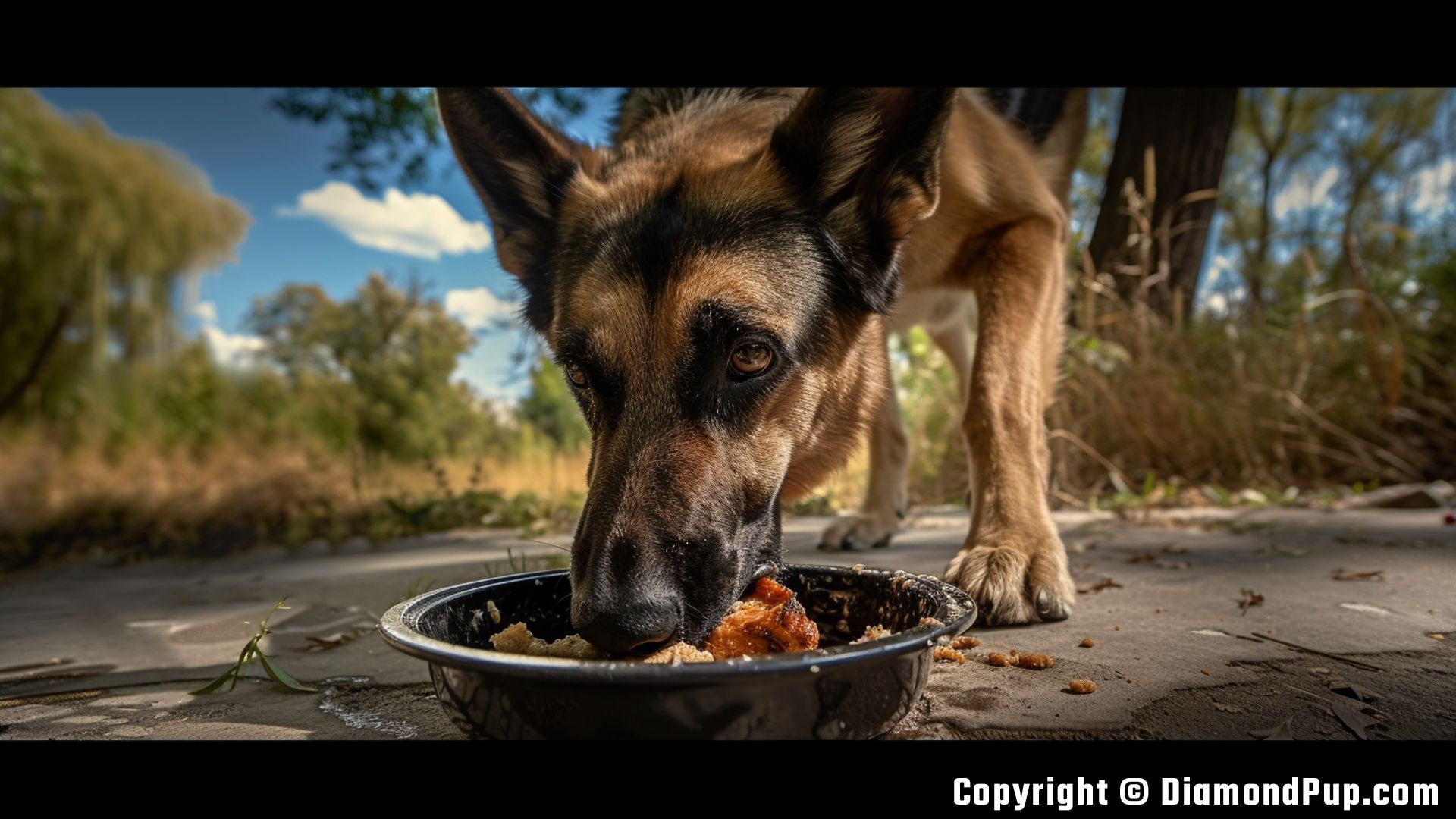
Nutritional benefits of Chickens for German Shepherds
Chicken is an excellent protein source for German Shepherds due to its high-quality amino acid profile, which is essential for muscle development and maintenance. Additionally, chicken provides important vitamins and minerals such as B vitamins, iron, zinc, and phosphorus, all of which are crucial for overall health and well-being in German Shepherds. It is important to feed your German Shepherd a balanced diet that includes protein from sources like chicken to support their active lifestyle and energy needs.
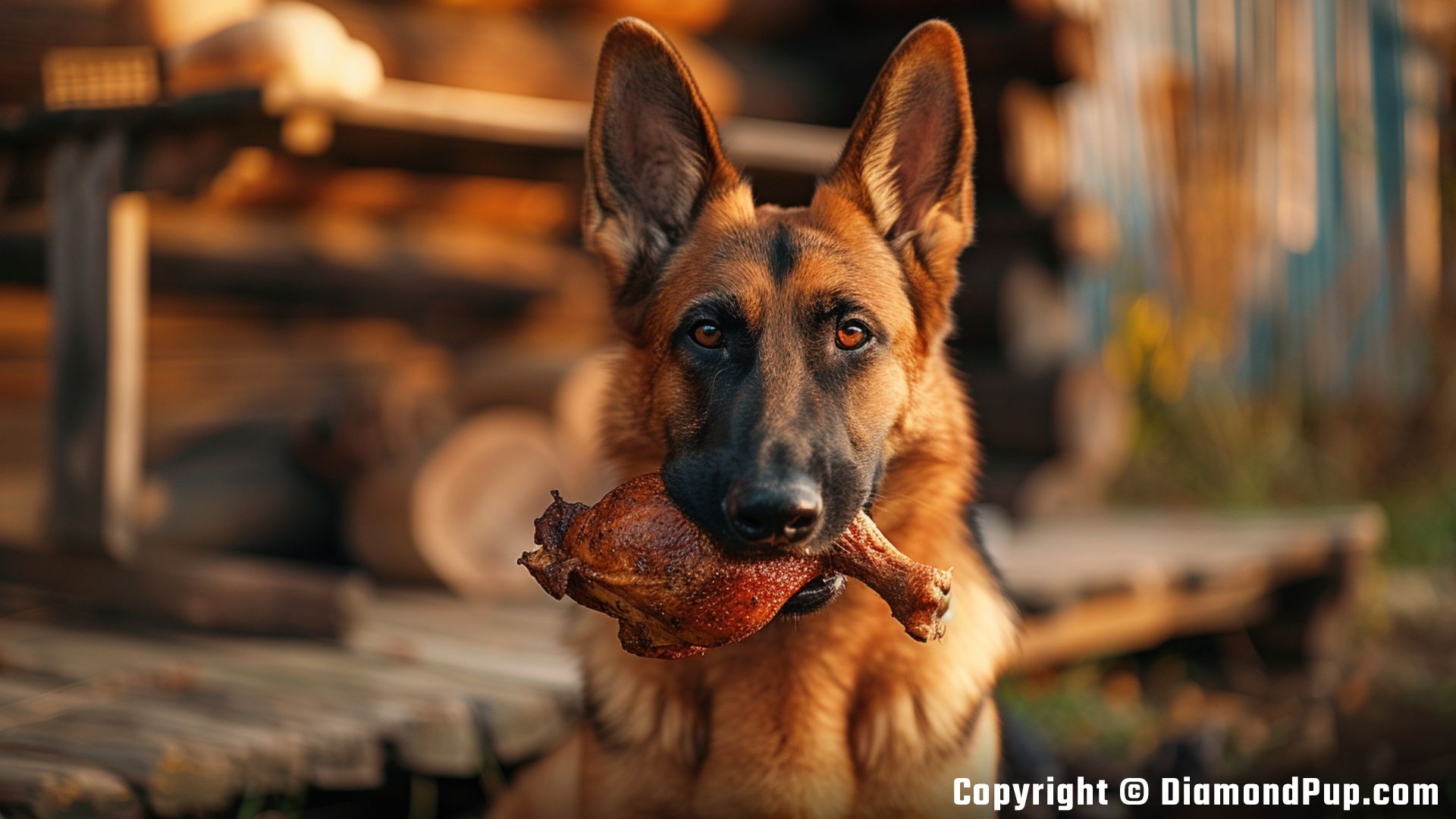
Safely Introducing Chickens to Your Dog's Diet
When introducing chicken to your German Shepherd's diet, it's crucial to do so gradually. Start by boiling or baking the chicken without any seasoning, as spices and herbs can upset your dog's stomach. Cut the chicken into small, bite-sized pieces to prevent choking hazards. Begin by incorporating a small amount of cooked chicken into your dog's regular meals, gradually increasing the portion over a period of days. This gradual introduction allows your German Shepherd's digestive system to adapt to the new protein source, reducing the risk of gastrointestinal upset.
Monitor your dog closely for any signs of food allergies or sensitivities, such as itching, vomiting, or diarrhea. If any adverse reactions occur, discontinue feeding chicken and consult with your veterinarian. Additionally, always ensure the chicken is fully cooked to kill any harmful bacteria that could cause food poisoning in your German Shepherd.
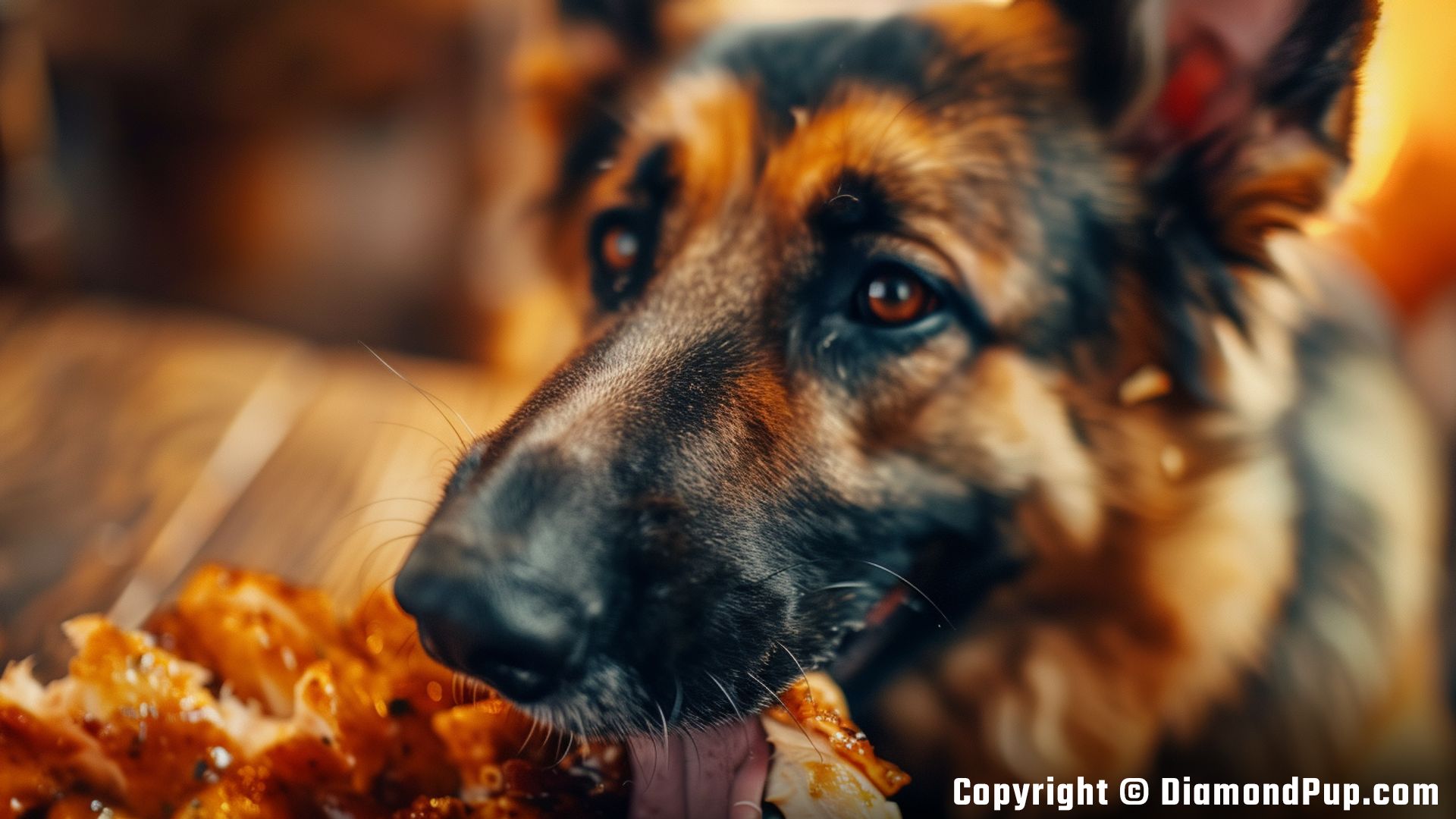
How much chicken can a dog eat safely?
When it comes to feeding chicken to your German Shepherd, moderation is key. As a general rule of thumb, chicken should make up no more than 10-15% of your dog's overall diet. This is to ensure that your furry friend is receiving a balanced and complete nutrition profile, as chicken alone may not provide all the essential nutrients needed for optimal health. It's important to consult with your veterinarian or a pet nutritionist to determine the exact amount of chicken that is appropriate for your individual German Shepherd, taking into consideration their age, weight, activity level, and any underlying health conditions.
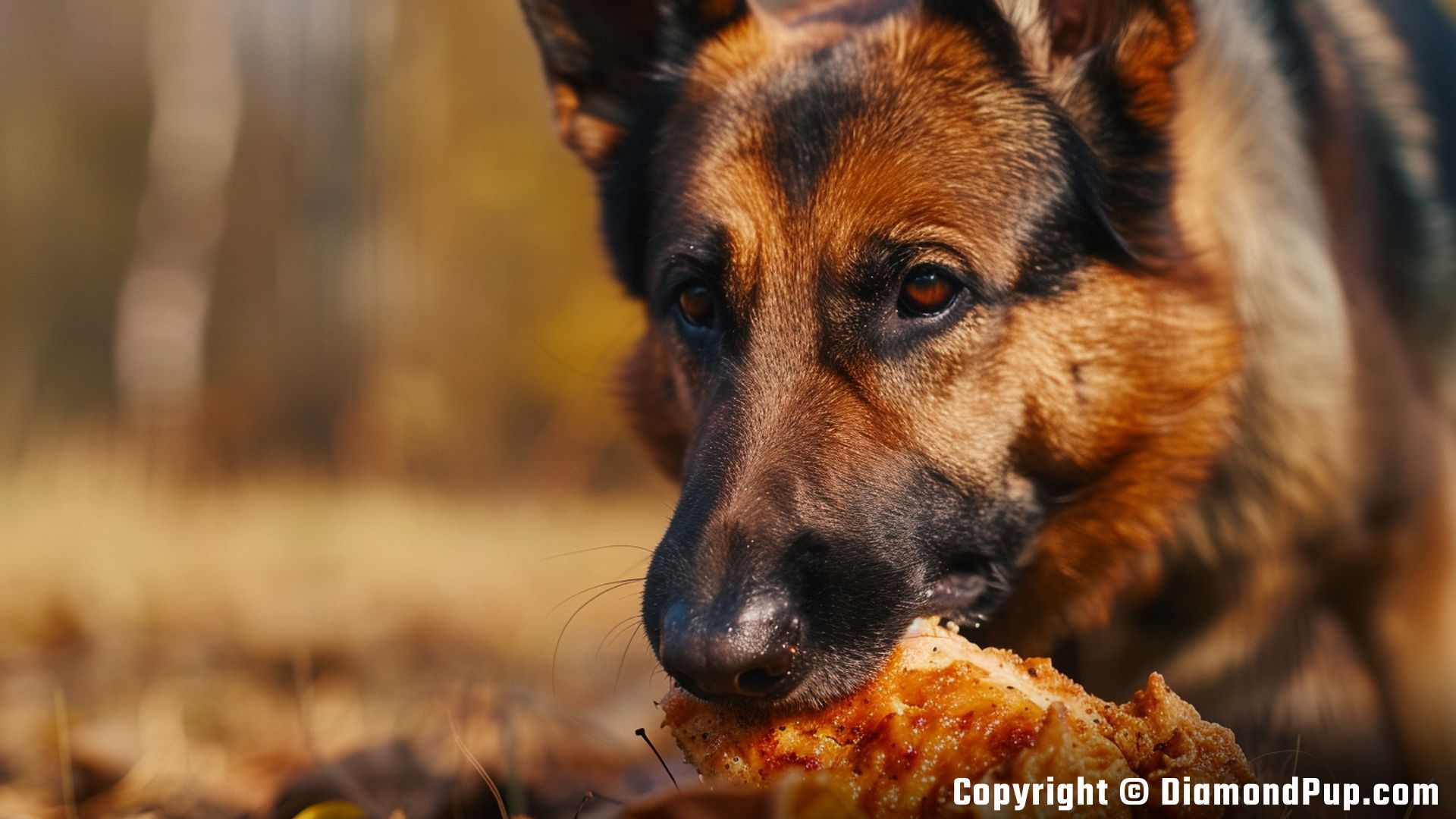
Tips to Remember When Feeding Your Dog Chickens
When feeding your German Shepherd chicken, it's crucial to ensure that the meat is fully cooked before serving. Raw chicken can contain harmful bacteria such as Salmonella and Campylobacter, which can lead to digestive upset and even more severe illnesses in dogs. To prevent any risks, make sure to thoroughly cook the chicken until there is no pink meat left and the juices run clear. Additionally, it's best to remove any bones from the chicken before feeding it to your dog to avoid the risk of choking, internal injuries, or intestinal blockages.
In terms of portion control, it's essential to feed your German Shepherd chicken in moderation as a part of a balanced diet. Too much chicken can lead to an imbalance in their overall nutrient intake, potentially causing nutritional deficiencies or excessive weight gain. As a general guideline, chicken should make up no more than 10-15% of your dog's daily food intake to ensure they receive a well-rounded diet that meets all their nutritional needs.
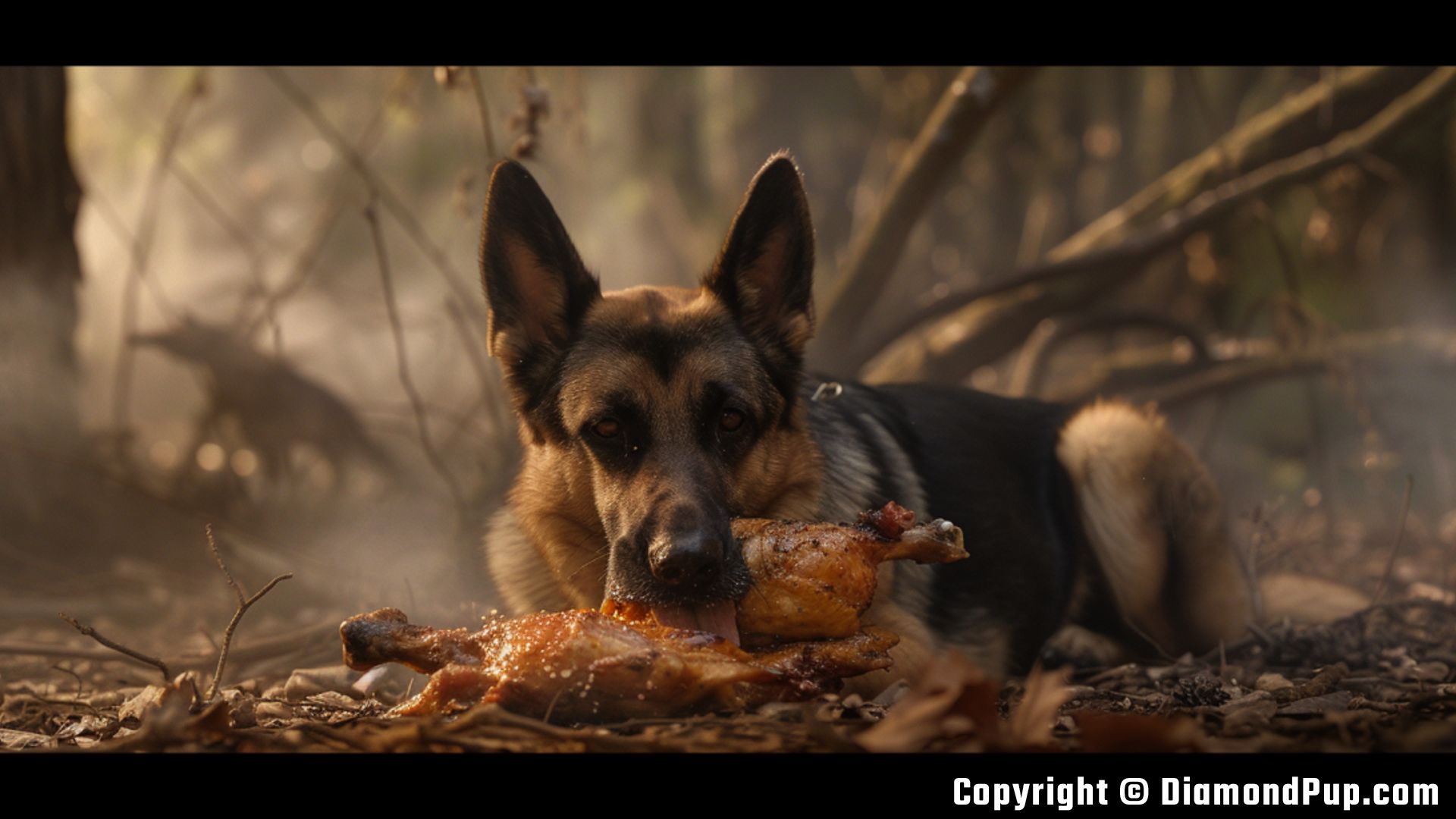
Feeding Your Dog Chickens
When it comes to feeding your German Shepherd chicken, it is important to ensure that the chicken is cooked thoroughly to avoid any potential bacterial contamination, such as Salmonella or E. coli, which could make your dog sick. Additionally, it is crucial to remove any bones from the chicken before feeding it to your dog, as bones can splinter and cause internal injuries. As a breed known for their large size and strength, German Shepherds may benefit from lean cuts of chicken to maintain a healthy weight and muscle mass.
Furthermore, when selecting chicken for your German Shepherd, opt for high-quality, organic chicken that is free from hormones and antibiotics. Avoid seasoning the chicken with ingredients like garlic and onions, as these can be toxic to dogs. By following these guidelines and feeding chicken in moderation as part of a balanced diet, you can provide your German Shepherd with a nutritious and delicious protein source.
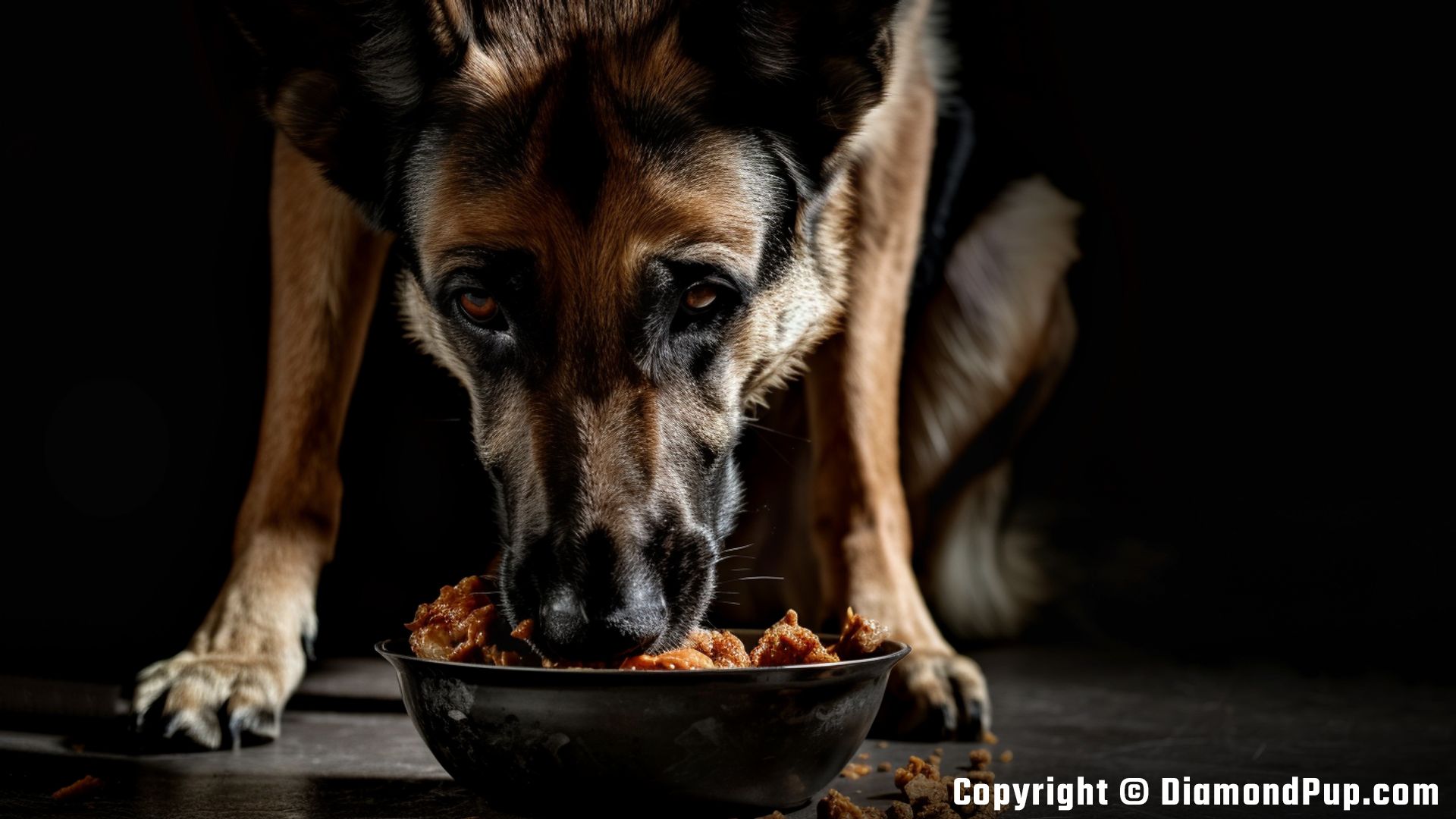
How to properly feed your dog Chickens
When it comes to feeding your German Shepherd chicken, it's important to ensure it is cooked thoroughly to kill any harmful bacteria such as salmonella. Stick to lean cuts of chicken, like skinless chicken breast, to avoid excess fat intake which can lead to obesity. Including a variety of other nutrients in your dog's diet, such as fruits, vegetables, and grains, can help provide a well-rounded meal plan for your German Shepherd. Remember to always consult with your veterinarian before making any significant changes to your dog's diet.
It's crucial to monitor your dog for any signs of food allergies or sensitivities when introducing chicken into their diet. Symptoms may include itching, digestive upset, or changes in behavior. Be mindful of any bones in the chicken as they can pose a choking hazard or cause gastrointestinal obstructions. By following these guidelines and feeding chicken in moderation, you can provide a healthy and balanced diet for your beloved German Shepherd.
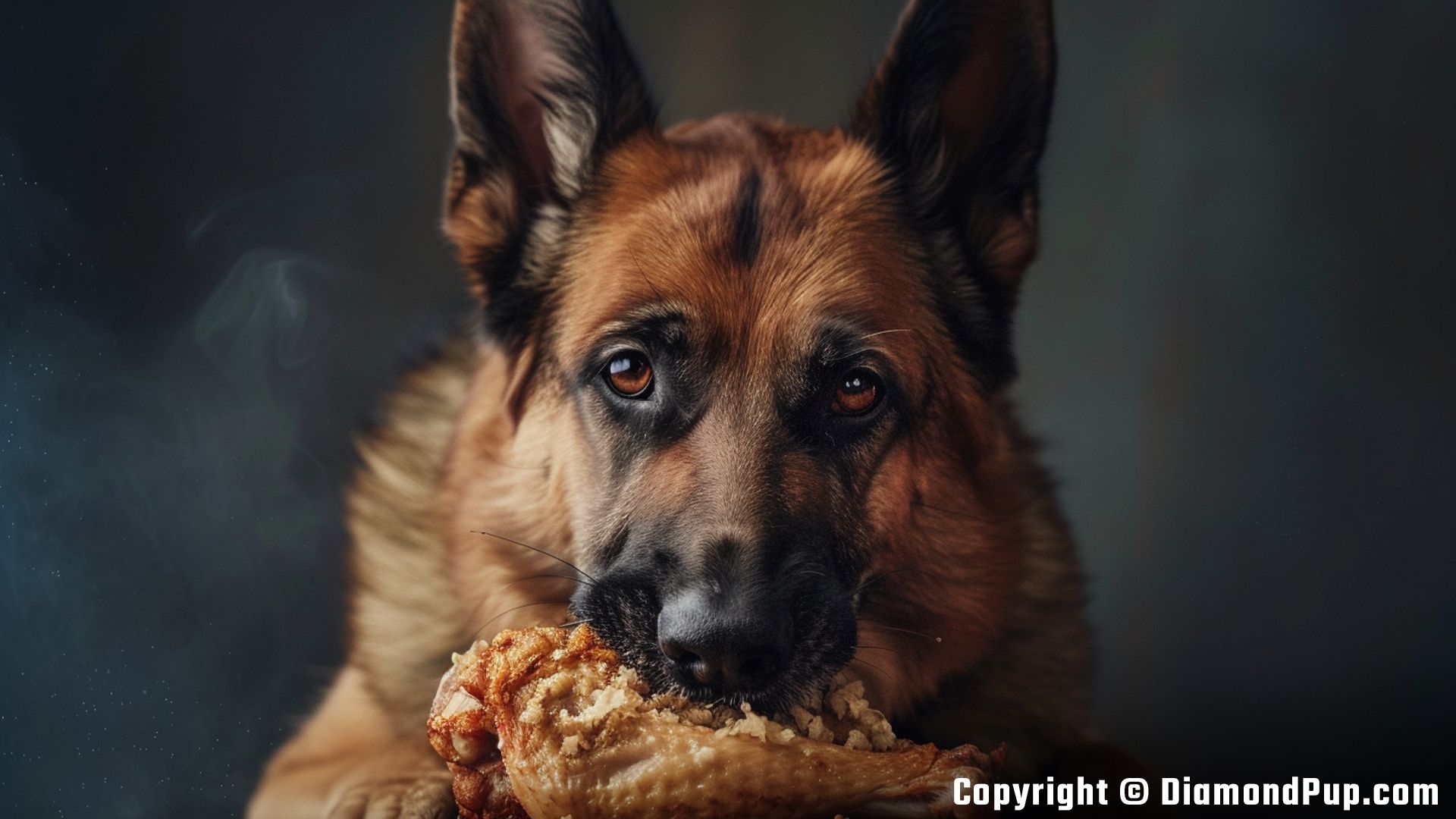
Do German Shepherds Like Chickens?
German Shepherds typically enjoy chicken due to its delicious taste and high protein content, which is essential for their muscle development and overall health. With their carnivorous nature, German Shepherds are inclined to favor meats like chicken as it satisfies their natural cravings. When feeding chicken to your German Shepherd, it's important to ensure that it is properly cooked and free from any seasoning or bones that could pose a choking hazard or cause gastrointestinal issues.
Additionally, chicken is a highly digestible protein source for German Shepherds, making it a suitable option for dogs with sensitive stomachs or food allergies. However, it's crucial to monitor your dog for any signs of intolerance or allergic reactions when introducing chicken into their diet for the first time. Overall, incorporating chicken into your German Shepherd's meals can provide a tasty and nutritious addition to their diet, promoting their overall well-being and satisfaction.
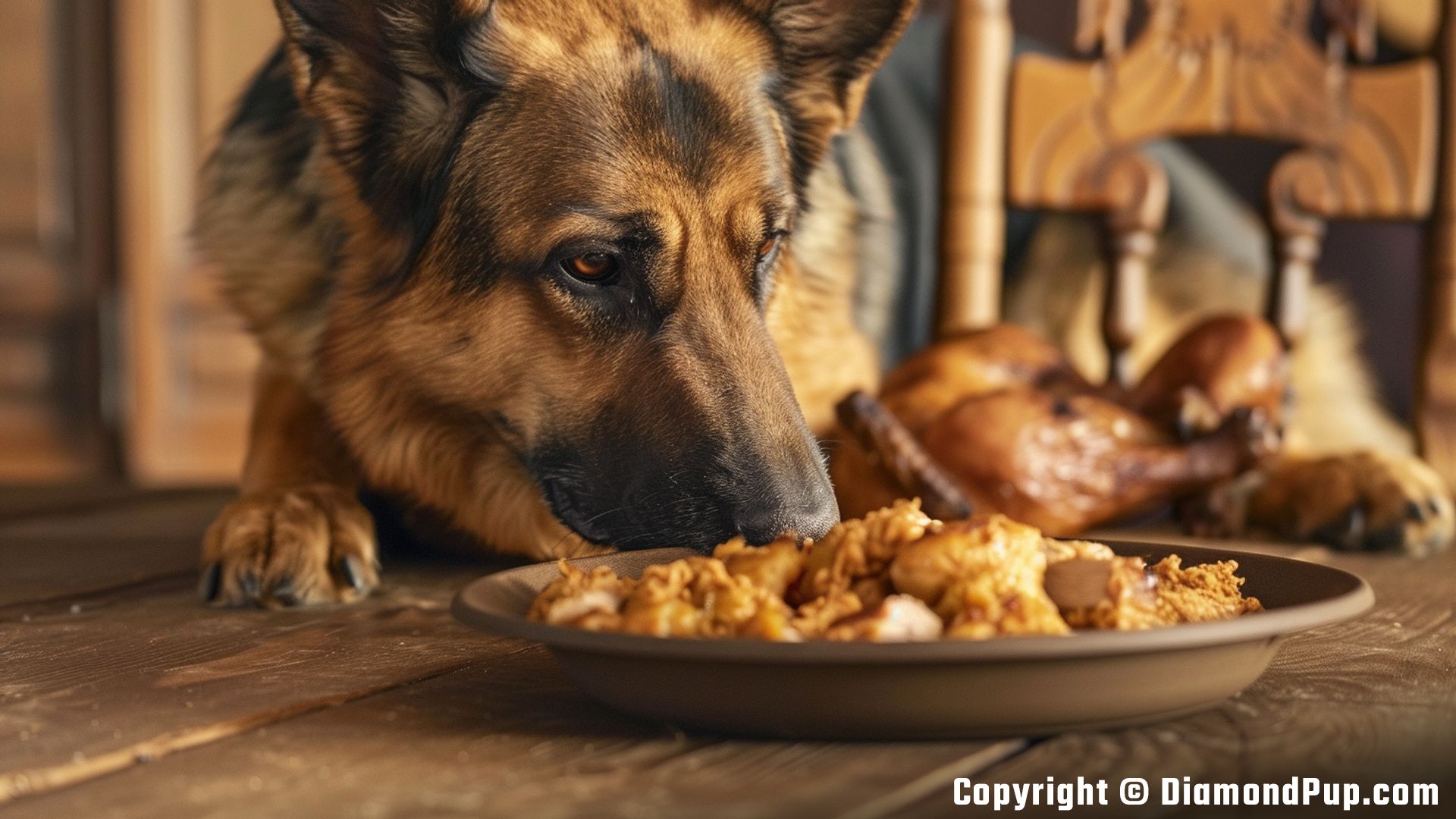
Special Consideration for German Shepherds
German Shepherds are a large and active breed that require a diet rich in high-quality protein to support their muscle development and energy needs. When choosing chicken for your German Shepherd, opt for lean cuts like chicken breast or thigh meat without the skin to ensure they are getting the necessary protein without excess fat. It's important to avoid feeding them seasoned or cooked chicken bones, as these can splinter and pose a choking hazard or cause internal injuries.
Additionally, German Shepherds are prone to certain health issues such as hip dysplasia and degenerative myelopathy. To support their joint health, consider adding supplements like glucosamine and chondroitin to their diet along with the chicken. Always consult with your veterinarian to determine the best feeding plan specific to your German Shepherd's individual needs and to ensure they are receiving a balanced diet to keep them healthy and active.
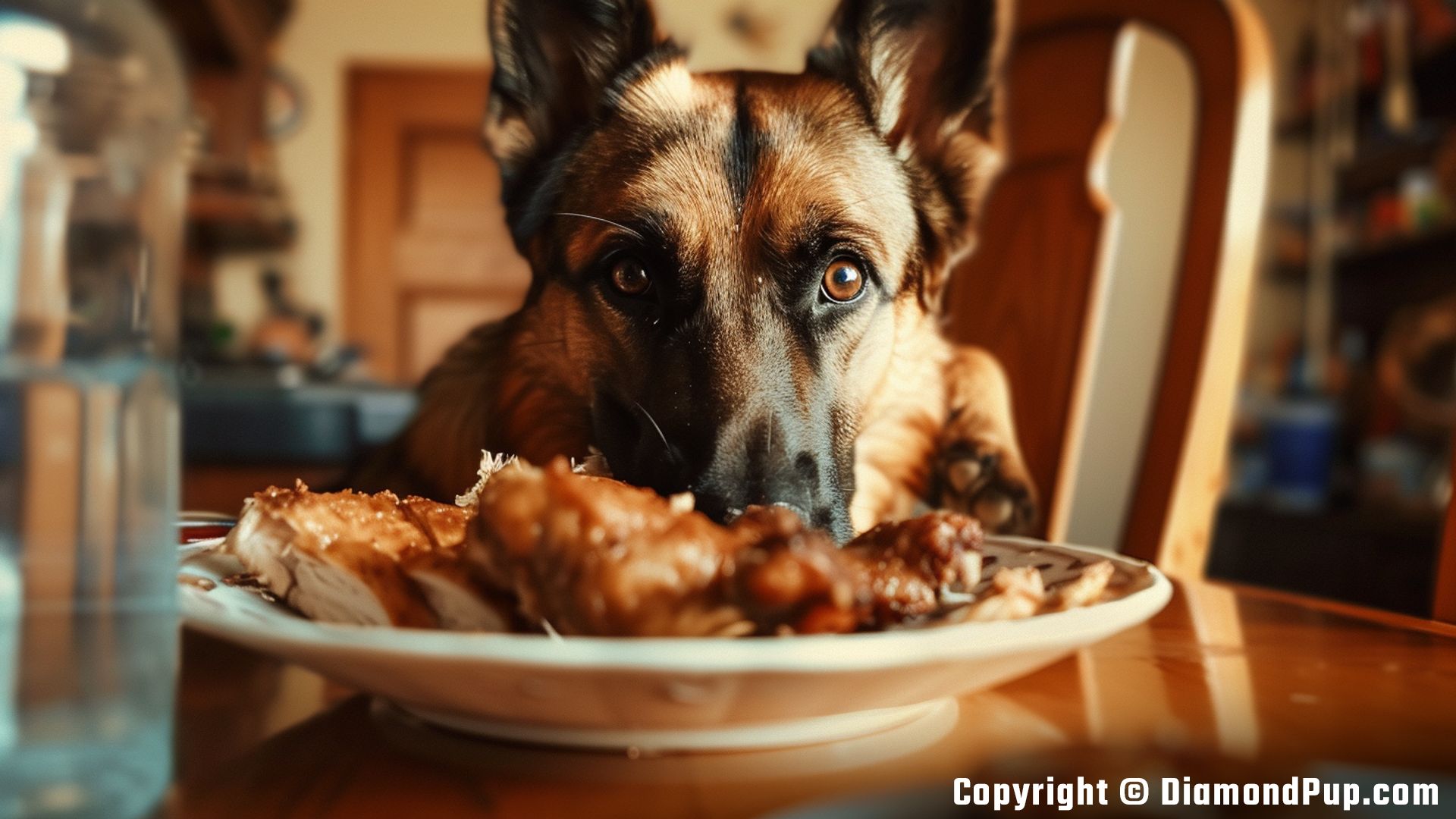
Can Puppies Have Chickens?
It is generally safe for German Shepherd puppies to have chicken as part of their diet, as long as it is cooked thoroughly and boneless to avoid any choking hazards. Chicken is a great source of protein which is essential for the growth and development of young puppies.
However, it is important to ensure that the chicken is plain and free from any seasoning or marinades that could be harmful to their sensitive digestive system. Additionally, monitoring for any signs of allergies or digestive upset after introducing chicken to their diet is recommended. As always, consult with your veterinarian for specific feeding recommendations tailored to your German Shepherd puppy's individual needs.
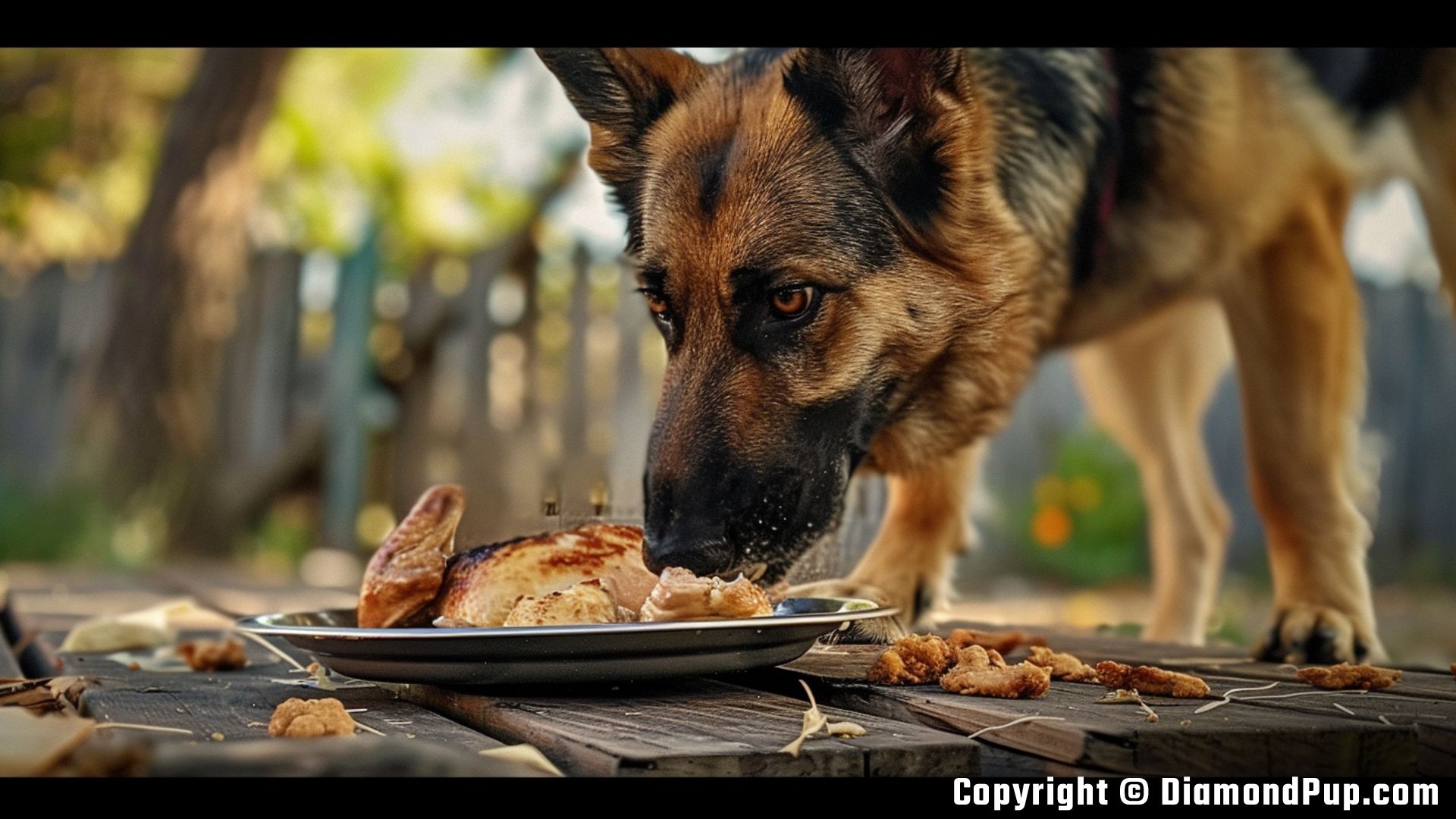
Are there any German Shepherds that shouldn't eat Chickens?
While most German Shepherds can safely consume chicken as part of their diet, there are some individuals within this breed that may have specific dietary needs or health conditions that require a different approach. Is strawberries good for German Shepherds or should they stick with traditional diets? For example, German Shepherds with known food allergies or sensitivities to chicken should obviously avoid this protein source. It's essential to consult with your veterinarian if you suspect your German Shepherd may have an adverse reaction to chicken or any other food ingredient. Additionally, older German Shepherds or those with kidney disease may benefit from a specialized diet that is lower in protein, including chicken.
Recipes for Feeding Your Dog Chickens
When it comes to feeding your German Shepherd chicken, it's crucial to ensure that the meat is cooked thoroughly to eliminate the risk of harmful bacteria such as Salmonella. One simple recipe you can try is boiled chicken mixed with cooked white rice, which is easy on your dog's digestive system and provides a balanced meal.
Alternatively, you can bake chicken breasts and slice them into bite-sized pieces for a tasty and nutritious treat. Just be sure to remove any bones before feeding, as they can splinter and pose a choking hazard to your furry friend. Remember to consult with your veterinarian before making any significant changes to your dog's diet.
Alternatives to Chickens for German Shepherds
While chicken is a highly recommended protein source for German Shepherds, there are some alternative options available if your dog has specific dietary needs or preferences. One common alternative to chicken is turkey, which is also a lean protein that provides essential amino acids for your dog's muscle development and overall health. Another option could be fish, such as salmon or mackerel, which are rich in omega-3 fatty acids that support your German Shepherd's skin and coat health.
If your German Shepherd has allergies or sensitivities to poultry, you might consider incorporating beef or lamb into their diet as alternative protein sources. Both beef and lamb are nutrient-dense meats that can still provide your dog with the necessary proteins and vitamins for a balanced diet. It's important to consult with your veterinarian before making any significant changes to your dog's diet to ensure it meets all their nutritional requirements.
Common Questions About German Shepherds and Chickens
One common concern pet owners have is whether feeding raw chicken to German Shepherds is safe. Raw chicken can contain harmful bacteria such as Salmonella or Campylobacter, which can lead to gastrointestinal issues in dogs. It is recommended to thoroughly cook the chicken before feeding it to your German Shepherd to eliminate the risk of bacterial contamination and ensure their safety. Additionally, bones in raw chicken can present a choking hazard or cause intestinal blockages, so it's best to remove them before serving the chicken to your furry friend.
Another common question is whether chicken skin is safe for German Shepherds to consume. While chicken skin is a good source of fatty acids, it is also high in fat and can potentially lead to obesity or pancreatitis in some dogs. As a result, it is advisable to feed chicken to your German Shepherd without the skin to reduce their fat intake and maintain a healthy weight. Ultimately, consulting with your veterinarian to determine the best feeding practices for your specific German Shepherd is always recommended.
Subscribe Now
Stay updated with the latest news and articles! We'll keep you updated on the latest tips for your pet German Shepherd
